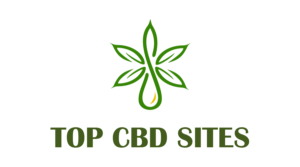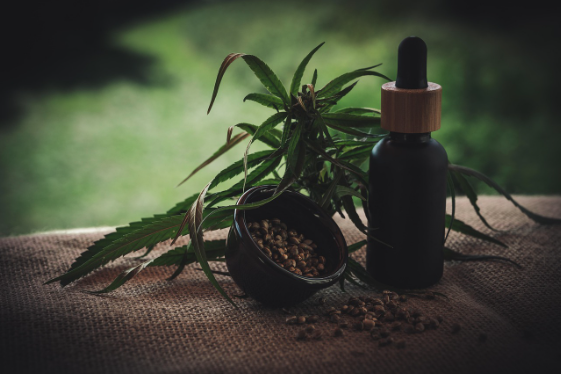The global cannabis market is evolving rapidly. With the rising popularity of CBD products, new consumers are becoming more curious about the distinctions between natural cannabis varieties and synthetic alternatives. Among the most commonly confused categories are soft cannabis (also known as “light cannabis” or CBD-rich hemp) and synthetic cannabis (lab-produced compounds designed to mimic THC effects).
Although both might seem similar at first glance, their effects, origins, and legal status vary dramatically. Let’s take a closer look to understand why choosing one over the other can significantly impact both your health and your legal safety.
What is Soft Cannabis?
Soft cannabis typically refers to cannabis strains rich in CBD (cannabidiol) and low in THC (tetrahydrocannabinol), the psychoactive compound found in traditional marijuana. These varieties are legally available in many countries (especially in Europe) because they don’t induce intoxication or a “high.”
Instead, soft cannabis offers relaxing, anti-inflammatory, and anxiolytic effects, making it ideal for:
- Stress relief
- Sleep support
- Mild pain or muscle tension
- Enhancing overall well-being
Soft cannabis is obtained through natural cultivation, without altering the plant’s molecular structure. Its flowers and extracts contain terpenes and cannabinoids that work together in what is often called the “entourage effect.”
Legal in most EU countries, soft cannabis must contain less than 0.2% to 1% THC depending on local laws, while maintaining high levels of CBD.
What is Synthetic Cannabis?
Unlike its natural counterpart, synthetic cannabis is not derived from the cannabis plant. Instead, it’s a man-made chemical designed to bind to the same receptors in the brain that THC activates. Products like Spice, K2, or other “designer drugs” fall under this category.
Despite their branding, synthetic cannabinoids are far from natural. They often carry:
- Unpredictable potency
- Severe side effects (including paranoia, vomiting, seizures)
- No therapeutic benefit
- High health risks even with minimal use
Many synthetic cannabis products are sprayed onto plant matter to imitate cannabis flowers, making them look deceptively similar. However, these substances are dangerously unregulated, and often sold illegally on black markets.
Why This Distinction Matters for Retailers and Consumers
If you’re a consumer looking for wellness products, or a business entering the CBD market, understanding this difference is essential.
Unlike synthetic substances, soft cannabis is compliant with EU laws, backed by research, and safe for regular use. Whether you’re purchasing raw flowers, oils, or infused products, knowing your CBD source ensures both quality and legality.
As a CBD Wholesaler, offering trusted, lab-tested, and fully traceable soft cannabis products is not just a legal requirement — it’s a business imperative. Customers demand transparency, and in an industry facing regulatory tightening, your reputation depends on what you sell.
What Does the Law Say?
Across Europe, the legal distinction is clear: soft cannabis (CBD-rich) is permitted under strict regulations, provided the THC content stays below national thresholds (usually 0.2% to 1%). It must come from approved industrial hemp strains. In contrast, synthetic cannabis is illegal in nearly all European countries due to its dangerous, unregulated composition and severe health risks. Authorities classify it as a narcotic, and its possession, sale, or use can lead to serious criminal charges.
Consumers and businesses must remain informed and ensure their products comply with current legislation to avoid legal complications.
Which Cannabis Should You Choose as a Reseller?
For retailers and wholesalers stepping into the cannabis market, product selection is critical. The choice between natural “soft” cannabis (such as CBD flowers, oils, and edibles) and more controversial synthetic cannabinoids (like HHC or THC-O) can greatly influence your brand reputation, legal risk, and customer satisfaction.
Know Your Market
Before choosing what to sell, define who you’re selling to. Are your customers health-conscious users looking for natural relaxation solutions? Are they trend-seekers curious about newer synthetic cannabinoids? Or do they expect high-quality wellness products with lab-tested origins?
Soft cannabis — mainly CBD-based products — is widely accepted, often legal, and easy to market in a wellness context. They include:
- CBD flowers
- CBD oils
- Gummies and edibles
- Vapes with CBD extract
- Topical creams or balms
These products typically fall under less scrutiny, making them the safest choice for long-term retail strategies.
Synthetic Cannabinoids: Tempting but Risky
Synthetic cannabinoids like HHC, THC-O, or Delta-8 THC may promise higher margins and unique effects, but they come with significant caveats. In many countries, their legal status remains vague or temporary, and regulation can shift quickly. Furthermore, their production process often lacks the transparency and traceability associated with certified CBD suppliers.
Final Thoughts
In summary, soft cannabis and synthetic cannabis are not just two sides of the same coin — they belong to entirely different categories. One is a safe, natural wellness option, while the other is a risky chemical substitute with harmful effects.
Whether you’re a retailer sourcing products or a consumer seeking relaxation or relief, always choose certified soft cannabis from trusted suppliers. It’s safer, more effective, and fully aligned with evolving regulations across Europe and beyond.

